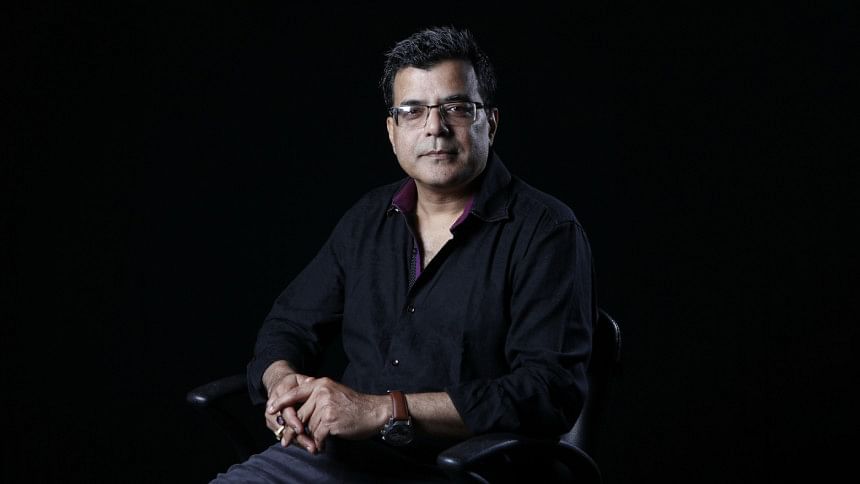“Sharing your ideas is what counts” – Partha Mazumder

Partha Mazumder prefers to stay out of the limelight. However, the music he produces and the tunes he composes, speak his heart out. He spent a few minutes with the A&E team, talking about the industry, new projects and the people he misses.
You have been involved in the music industry for many years now. The present situation is a lot different than before. What are your experiences so far?
Everyone was much more involved back then. It didn't matter who was doing what; we were always helping each other out. For example, if I was working on something, Bacchu bhai (Ayub Bacchu) would come and suggest that I should do something differently. Great artistes like him, James and Niloy Das were all open to opinions from other musicians.
In music, sharing your ideas is what counts. We now tend to create music in the confinements of our homes, not sharing as much. As a result, 8 out of 10 songs tend to sound the same nowadays. Everyone works on a grid now and no one is willing to go outside it. Having said that, I must say that many people are doing excellent work nowadays. The underlying reason is their understanding of the need to share their music and grow, and their willingness to experiment with various chords and tones.
What are the projects you are currently working on?
I am working with Bappa on a project. I am collaborating with some newcomers as well.
You worked as a groomer for singers in a reality show recently. Can you tell us a bit about it?
I was working as a judge at the show in the beginning stages. They later asked me to take over the whole production, and that is when I started to groom the singers. I had a lot of fun doing so!
You recently started a music school with Partha Barua. Tell us about it.
The school's name is G-Sharp, we started it last year. It was a sudden decision. Partha was reminiscing about our struggles of learning, and he wanted to help others with our experiences. We needed a governing body, helping hands and then many of our well-wishers came forward to help with the school. We are starting with guitar, piano, tabla, and classical songs. Milon Bhattacharya will be giving tabla lessons, Partha Barua, Bappa Majumdar and myself, will be giving the guitar lessons. We are not doing this for money. We want to do this for people who are enthusiastic about learning so that they don't make the same mistakes we made. We plan to expand this school.
Can you tell us a little about your involvement in the band scene?
I am currently working the bass player of Dhrubotara. I was one of the founding members of the Bangladesh Musical Band Association (BAMBA). Then I founded ARK with Ashiquzzaman Tulu. I founded Face to Face in 2005, later on with Humayun Ahmed's suggestion, we changed the name to Dhrubotara.
The younger generation is familiar with doing shows in cafes or indoors. You used to do shows outdoors and that experience is different from our generation. How was that experience?
We performed in all the 64 districts of Bangladesh. There were places with no electricity, and we performed with our own generators. We once did a show in Bangsha, Kushtia, and more than 500 motorbikes went with us. We were able to truly feel the people's love, these experiences are timeless.

 For all latest news, follow The Daily Star's Google News channel.
For all latest news, follow The Daily Star's Google News channel. 



Comments